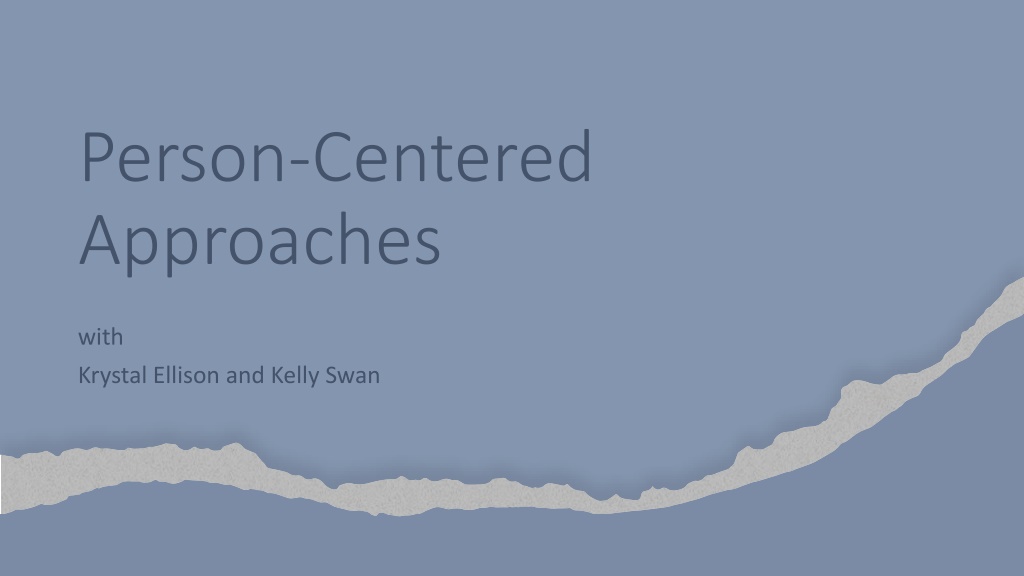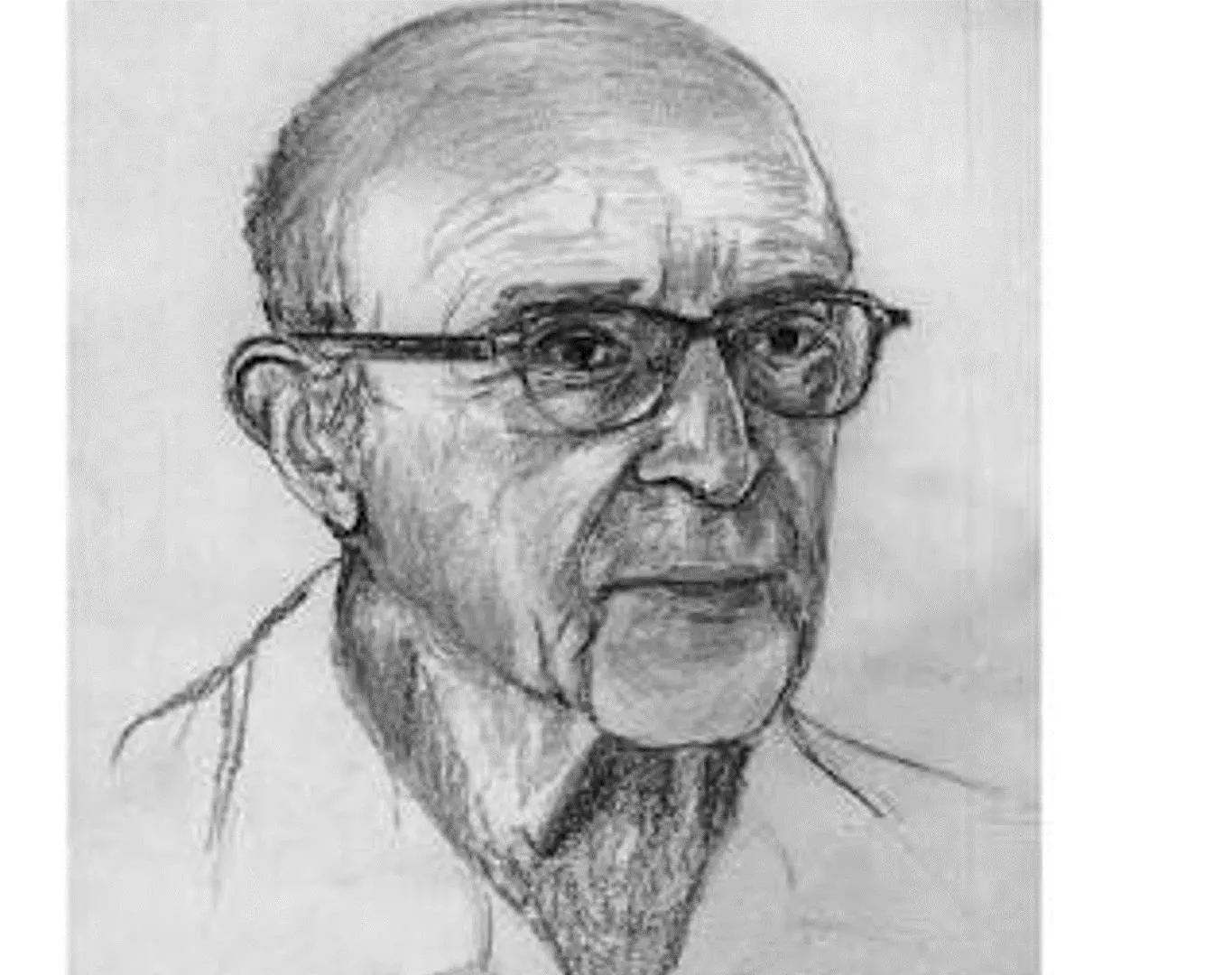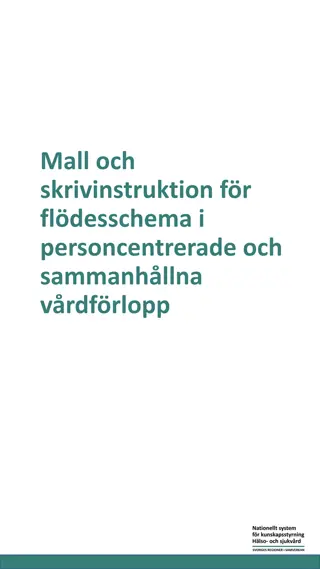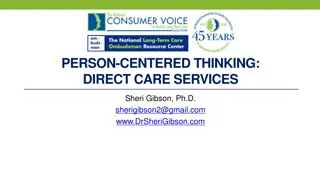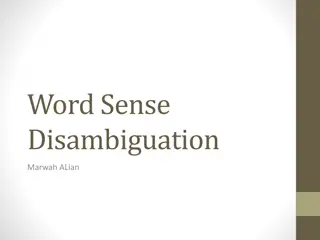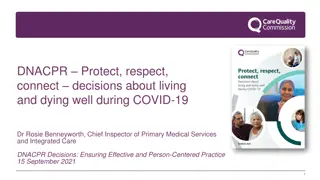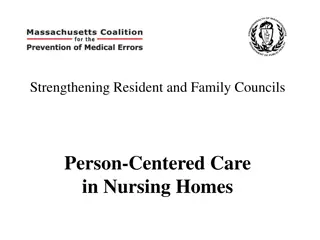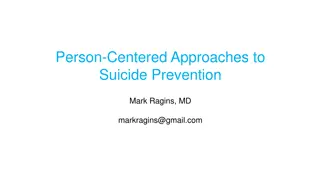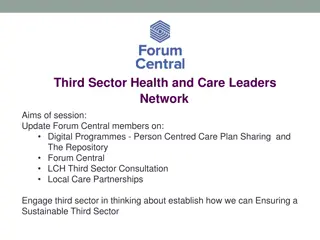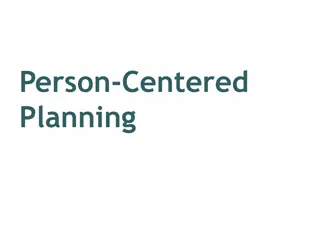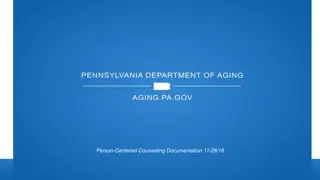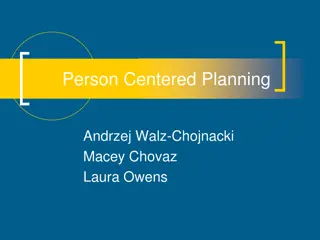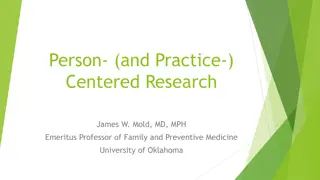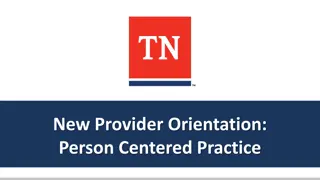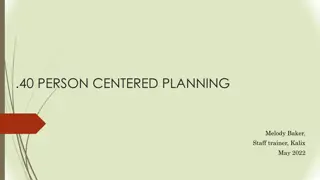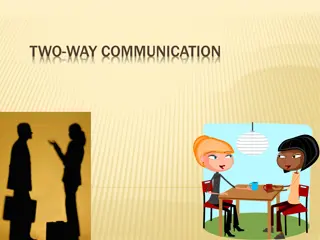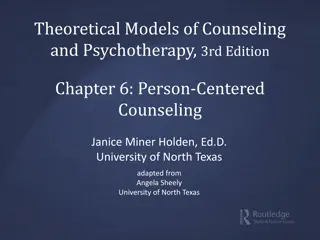Person-Centered Approaches
Person-Centered Approaches, developed by psychologist Carl Rogers, focus on core principles like Unconditional Positive Regard, Congruence, and Empathy. These principles emphasize being genuine, authentic, and empathetic towards clients to create a supportive and understanding environment. The approach values meeting clients where they are at in their journey and guiding them towards positive outcomes.
Download Presentation

Please find below an Image/Link to download the presentation.
The content on the website is provided AS IS for your information and personal use only. It may not be sold, licensed, or shared on other websites without obtaining consent from the author.If you encounter any issues during the download, it is possible that the publisher has removed the file from their server.
You are allowed to download the files provided on this website for personal or commercial use, subject to the condition that they are used lawfully. All files are the property of their respective owners.
The content on the website is provided AS IS for your information and personal use only. It may not be sold, licensed, or shared on other websites without obtaining consent from the author.
E N D
Presentation Transcript
Person-Centered Approaches with Krystal Ellison and Kelly Swan
What are What are Person Person- -Centered Centered Approaches? Approaches? Developed by Psychologist, Carl Rogers Evidence-based practice
Core Principles Unconditional Positive Regard Congruence Empathy
Do we have to agree with our clients to show unconditional positive regard?
Nope! The important thing is that we will still be there for them regardless of their actions. This is why we hold them in positive regard, despite their words, actions, or experiences. We are merely the GPS. We can show them a dozen different paths, but they can choose which to take.
How do we show congruence? By: Being genuine Being authentic Being honest Being relatable
Empathy is: The ability to pull something from inside yourself in order to relate to someone else s experiences.
Ways we can be person centered:
Director of Nursing at recovery center: What do we do if a client leaves treatment to use? Common Questions:
Part of meeting a client where they are means recognizing that they may not be ready for treatment. You can speak to them if they are comfortable and willing, but if not, give them information on harm reduction options. You cannot force them to stop using, but you can guide them to options that will allow them to do so safely until they are ready.
It is imperative to offer options. Some people do better when they are completely abstaining from substances, whereas some can eventually go on to have a drink without relapse. Regardless of our own thoughts, our clients deserve the autonomy to learn for themselves.
Not at all! Harm reduction are things we practice in everyday life already, such as wearing sunscreen at the pool or hiking boots in the mountains. You cannot stop the behavior, but you can mitigate risk such as the spread of diseases like Hepatitis C and limit the number of overdoses.
Housing Case Manager: How can we help those with serious mental illness when they refuse to take meds or seek help?
We cannot force them. We often see this due to many reasons, such as stigma, transportation, or not feeling as though they need help. This can be frustrating for a case manager to navigate, but ultimately, it is not our decision. Explore alternative options, like telehealth, a church leader, or creating a safety plan with people to contact when things feel out of control.
Why is harm reduction person- centered?
When have you been person-centered?
